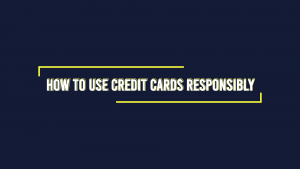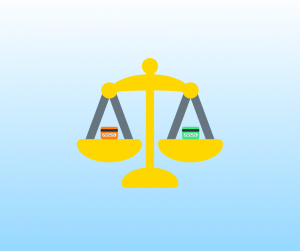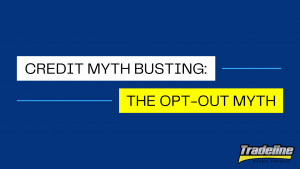How to Use Credit Cards Responsibly Without Going Into Debt

How to Improve Your Finances in 2025
01/09/2025
How to Deal With Holiday Debt
01/18/2025
Credit cards are often vilified for their high interest rates, which can be very costly to consumers who carry a balance from month to month rather than paying off the full balance that was accrued. Credit expert John Ulzheimer believes that credit cards do not deserve the bad reputation they have earned.
In a Credit Countdown video on our YouTube channel, John explained why credit cards are not necessarily as bad as they are made out to be and how to use them responsibly without going into credit card debt.
Keep reading to learn more on this topic and watch the video below!
Credit Card APRs
It’s true that credit cards do have high interest rates compared to other forms of credit, even if you have a good credit score. For this reason, once you get into credit card debt, it can be a very deep hole to climb out of, because the interest charges keep adding to your total amount of debt.
However, as John points out in the video, no one forces you to open a credit card or go into credit card debt, so in his opinion, it seems unfair to blame credit cards with high interest rates for actions that consumers choose to take.
If you choose instead to pay off your balance every month, then you do not have to pay interest on your purchase, so the APR of the card is irrelevant. Therefore, if you use credit cards responsibly, there is no need to choose a credit card based on its APR.
Always Pay Off Your Credit Cards in Full
The most important rule when it comes to using credit cards correctly is this:
Only charge as much as you can pay off in full every single month.
When you pay your bill in full each month, since you are not paying interest, it is essentially free to use credit cards. The exception to this is if your credit card has an annual fee, but for some consumers, the annual fee on some credit cards may be worth paying in order to reap the rewards offered by the card.

Maintain a Low Balance-to-Limit Ratio
If you want to have a good credit score, it’s important to keep a low balance-to-limit ratio (also commonly called the credit utilization ratio). The closer your balance is to your credit limit, the fewer points you can earn toward your credit score.
This goes for both FICO credit scores and VantageScore credit scoring models.
Don’t take this to mean that you cannot use your credit card often or use it to make large purchases. Just be aware that since a higher balance-to-limit ratio means a lower credit score, you may want to avoid doing anything to substantially increase your balance before you apply for a loan, especially a large loan, like a mortgage loan or an auto loan. Otherwise, you could end up with a higher interest rate that could cost you thousands of dollars in additional interest over the course of the loan.
Do Not Skip a Payment
Some credit card issuers offer “skip a payment” programs that allow you to “skip” a payment for one month, especially around the holidays, when consumers may rely more on their credit cards.
John recommends never signing up for these programs because by skipping a payment, you are obviously opting not to pay in full that month. Since you are carrying the balance to the next month, you will be charged interest on the debt and you will have even more debt to pay back when your next due date comes.
Instead of skipping a payment, the more responsible thing to do is to go ahead and pay the statement in balance in full just as you normally would.
Conclusions
While credit cards may be risky in the wrong hands, responsible consumers do not need to forgo using them altogether. It is possible to benefit from using credit cards as a financial tool without going into debt or paying interest.
To that end, make sure you always pay your balance in full and maintain a low balance-to-limit ratio, and never skip a payment.
To hear from John directly, check out the video below. Subscribe to our YouTube channel to see more of our Credit Countdown videos!





